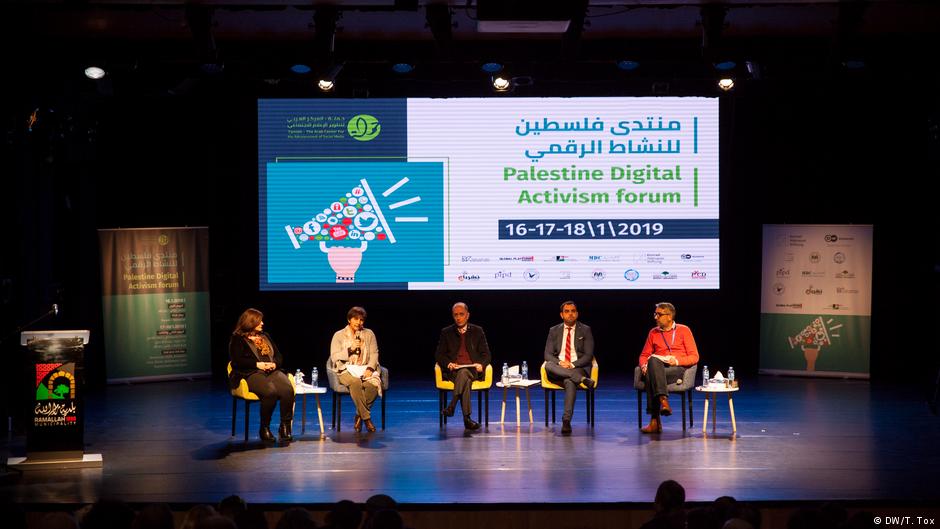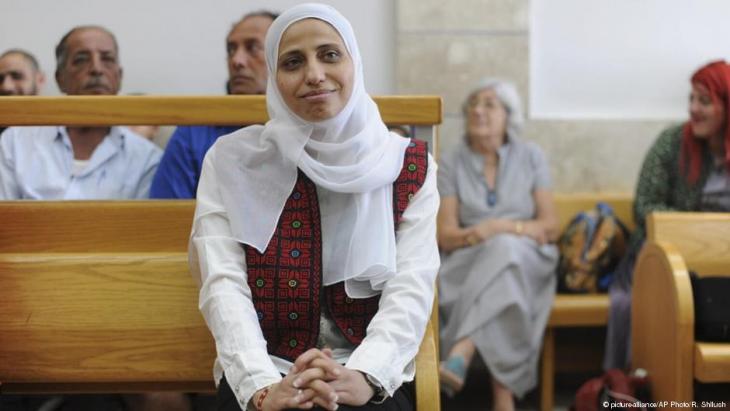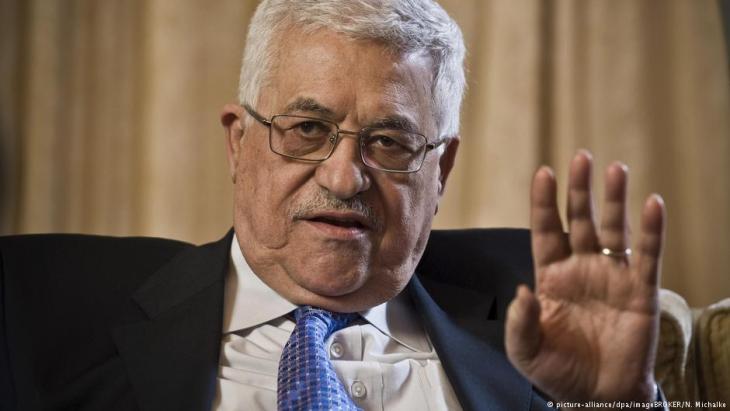"They are afraid of the truth"

"Resist, my people, resist them. In Jerusalem, I dressed my wounds and breathed my sorrows. And carried my soul in the palm of my hand. For an Arab Palestine."
So read the first few lines of Dareen Tatour's poem, "Resist my People", which, following publication on YouTube, landed her in jail for "incitement to violence and supporting a terrorist organisation".
Tatour, a poet and social media activist, is one of hundreds of Palestinians across Israel and the occupied Palestinian territories who are detained by Israel each year for social media posts. As Palestinians have taken to social media to express their rejection of living under occupation, Israel has increased its monitoring and censorship of online posts.
More digital rights for Palestinians
In order to address the shrinking space for freedom of expression in Palestine and promote digital rights, 7amleh, the Arab Centre for Social Media Advancement, organised a three-day long Palestinian Digital Activism Forum. The gathering was supported financially by the DW Academy, which also sends its trainers to the region to speak about digital issues.
Human Rights Watch Palestine and Israel Director Omar Shakir is convinced that social media has essentially provided Israel with an outlet to curtail the basic civil rights of Palestinians. "Israel very heavily polices these platforms [and] uses them to monitor and restrict the rights of Palestinians who engage in free expression."

In 2015 Israel set up a Cyber Unit, which falls under the state attorney's office to deal with "cyberspace enforcement challenges" through the censorship of social media posts. The unit did not reply to requests for an interview. 7amleh says their work is conducted in collaboration with social media giants like Facebook and YouTube to remove content and block user access.
Arrested for speaking freely
Tatour was one of the first Palestinians to be targeted by the unit and then arrested in a pre-dawn raid on her home in October 2015. Thereafter, Tatour was moved between different Israeli prisons for three months before being placed under house arrest.
In May last year, an Israeli court convicted her for incitement to violence and sentenced her to five months in prison. "I did not think for a moment that I would ever be arrested for writing and publishing a poem," Tatour said.
In her poem, Tatour wanted to express the suffering of her people living under occupation. "I wanted to say that it is our right to resist injustice and occupation."According to 7amleh, around 350 Palestinians were arrested on such cases of incitement in 2018, though the numbers are hard to corroborate, as the Israeli government routinely denies access to the data. "Social media is increasingly becoming one of the major places for people to express themselves, particularly in the context of the West Bank, where movement is restricted," said Shakir.
Tatour echoes this sentiment and describes how important social networking sites are to take her voice outside of the country. "My access to the outside world is somewhat limited by the occupation and the political, social and economic conditions."
Now, realising that her voice is constantly monitored across all social media platforms, Tatour fears she could be rearrested at any moment. "[Israel] does not want Palestinians to talk about politics and the reality of the occupation. They are afraid of the truth."
Palestinian President Mahmoud Abbas has enforced a highly problematic law to punish cyber crimes. All it takes to end up in prison is to publish something on websites or in other social media that allegedly violates public order.

Algorithmic monitoring of online activities
Israel has also developed a predictive policing system in the form of a computer algorithm. Monitoring hundreds of thousands of Palestinians online accounts, the algorithm identifies "suspects" likely to carry out attacks against Israel. This algorithm worries Shakir of Human Rights Watch: "The algorithm is based on principles that do not conform with international law."
As an occupying power, Israel is bound by international humanitarian rights law and is required to provide for civilian rights, including freedom of expression. The law also safeguards the criticism of political policies and any limitation must be restricted to a specific context, which a computer cannot do.
Sahar Francis, director of the prisoners' rights organisation Addameer, asserts that Israel's monitoring and arrests based on social media posts are illegal. "We have the right under international law to criticise and resist occupation."
Social media companies have also been urged to play a genuine role in ensuring the rights of their users. "They must, in the Palestinian context, scrutinise requests for user data and [understand] the way it could lead to serious human rights abuses," Shakir said. 7amleh reports that 85 percent of Israeli requests to "remove content deemed harmful or dangerous" from services such as Facebook and Twitter were accepted in 2017.
Francis pointed out a series of posts, which are removed and often land Palestinians in jail. "If you share a picture of a martyr and you write a sentence like 'may God bless him', this would already be considered supporting a terrorist act and inciting violence."
Tessa Fox
© Deutsche Welle 2019
